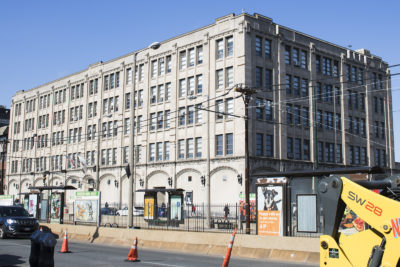
This April’s American Education Research Association conference will feature a strong presence from Boston University faculty, students and alumni. The conference, to be held in New York City, will host seven BU associates as presenters.
Founded in 1916, AERA works to improve educational learning by promoting research into education practices, methods and measures. Presenters at the annual conference share their findings on an international stage.
The theme of this year’s conference is “The Dreams, Possibilities, and Necessity of Public Education.” Presentations will span topics from “The Lived Experience of High School Musical Theater” to “Musical Homeschooling in Southern Wisconsin.”
AERA typically attracts around 15,000 attendees, Ronald Kos, a professor at the BU School of Music, wrote in an email. Kos has been a regular attendee at the AERA conference since 2004.
“It is the conference I look forward to each year because I have the opportunity to learn so much about the work that is being done outside my immediate discipline, which is music education.” Kos wrote.
Kos is presenting his paper, “Pre-service Teachers’ Early Beliefs About Music Education,” this April. Pre-service teachers are university students enrolled in teacher-preparation programs who will soon become music educators in public and private schools. Kos researches these students; feelings toward their chosen field, as well as their identities as teachers.
“The better I understand their current beliefs and the ways that those beliefs can be influenced, the better I can guide them as they develop new beliefs.” Kos wrote.
Denisse Santos-Stanbery, a graduate of the Doctor of Musical Arts program at BU, will co-present on “Latina/o Representation in Music Education Scholarship” with dissertation supervisor Adria Hoffman. This is Santos-Stanbery’s first time attending the conference.
Santos-Stanbery wrote in an email that she and Hoffman investigated how Latinx students have been represented in music education literature over the past 15 years, which has not been researched before.
“We compiled a literature review of articles serving Latino/a students in several major music education journals and found that very little has been done to address Latino/a student populations in music education over that period of time,” Santos-Stanbery wrote.
This type of research has not been done before, Santos-Stanbery wrote.
“Very little research has focused on Latino/a students, particularly in music education,” Santos-Stanbery wrote. “Serving diverse student populations in classrooms includes implementing culturally relevant methods to facilitate student engagement, as well as promoting social justice and equitable opportunities.”
This will be David Ledgerwood’s first time attending AERA as well. Ledgerwood, who earned his DMA in music education at BU, is chair of the Music Department of Maranatha Baptist University. His AERA presentation aims to bring together his personal experience with homeschooling and his work in musical academia.
“My interest was to examine other families, and then do that for my dissertation,” Ledgerwood said. “I wanted to give academia a window into what homeschooling looks like, and then I also wanted to give homeschoolers [the same].”
Ledgerwood surveyed the methods of families incorporating music education into their homeschool curricula.
“Some of these homeschooling families are doing things that were educationally sound,” Ledgerwood said. “Some of them did it intuitively, and some of them did it because they were well educated, so I thought that was kind of interesting.”
From his own experience, he has found this combination to be beneficial to students. Three of his children now work in the public education field.
“The second reader of my dissertation … thanked me for providing that window,” Ledgerwood said. “She had never explored this topic and she did feel that it did provide a pretty reflexive and honest picture of both positives and weakness inherent in homeschooling.”
Claire-Solene Becka, a freshman in the College of Arts and Sciences, said she believes in the importance of musical education.
“I think it helps mental health.” Becka said. “It offers alternatives to students that may not follow traditional methods of schooling and it’s essential to our culture and therefore it must be taught.”
Aislinn O’Brien, a freshman in the Arvind and Chandan Nandlal Kilachand Honors College and CAS, said that while she was involved in music education in middle school and high school, she does not know if she has benefited economically from it.
“I don’t know if it helped me learn any better, but I definitely enjoyed it,” O’Brien said. “It totally broke up my day, and I do value it because it’s a different kind of learning. It works your brain in a different way. I think it’s valuable,”
Layth Hert, a sophomore in CAS, said music education has made him more cultured.
“Back when I went to school in Lebanon during elementary and middle school, we had a mandatory music class,” Hert said. “It honestly didn’t seem important at the time, but now that I think about it, it helped me become more cultured and aware of musical changes throughout history.”
Hert said he thinks music education is important to young people, primarily students.
“I think public schools should have a musical education [program] since it would give children a different way of approaching education — much more different than the typical ‘classroom’ type of education,” Hert said.





















































































































